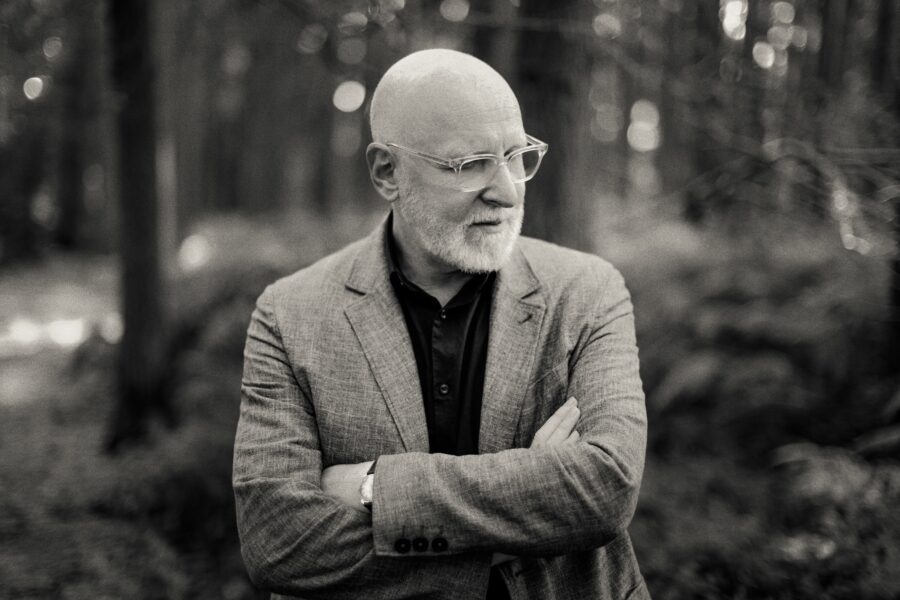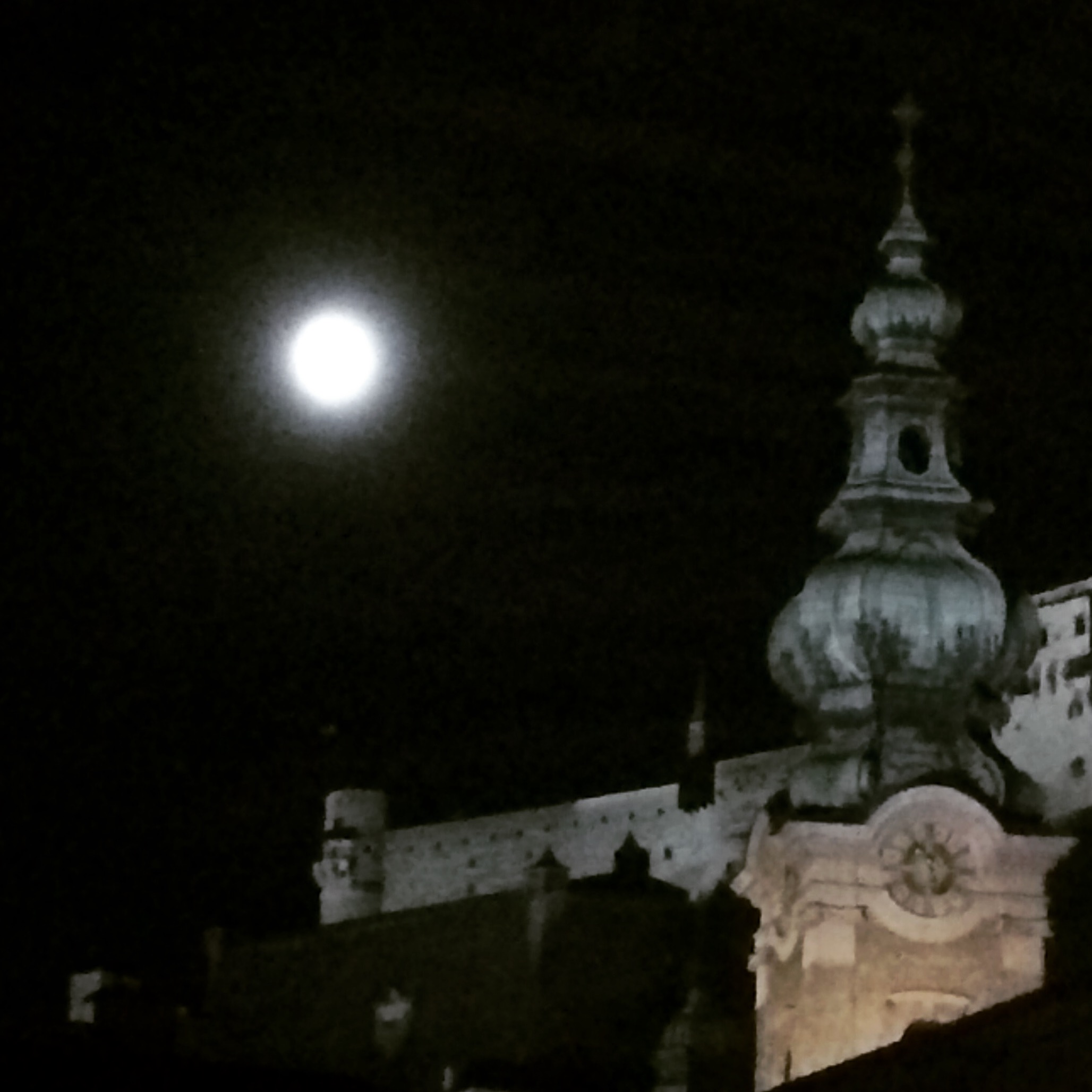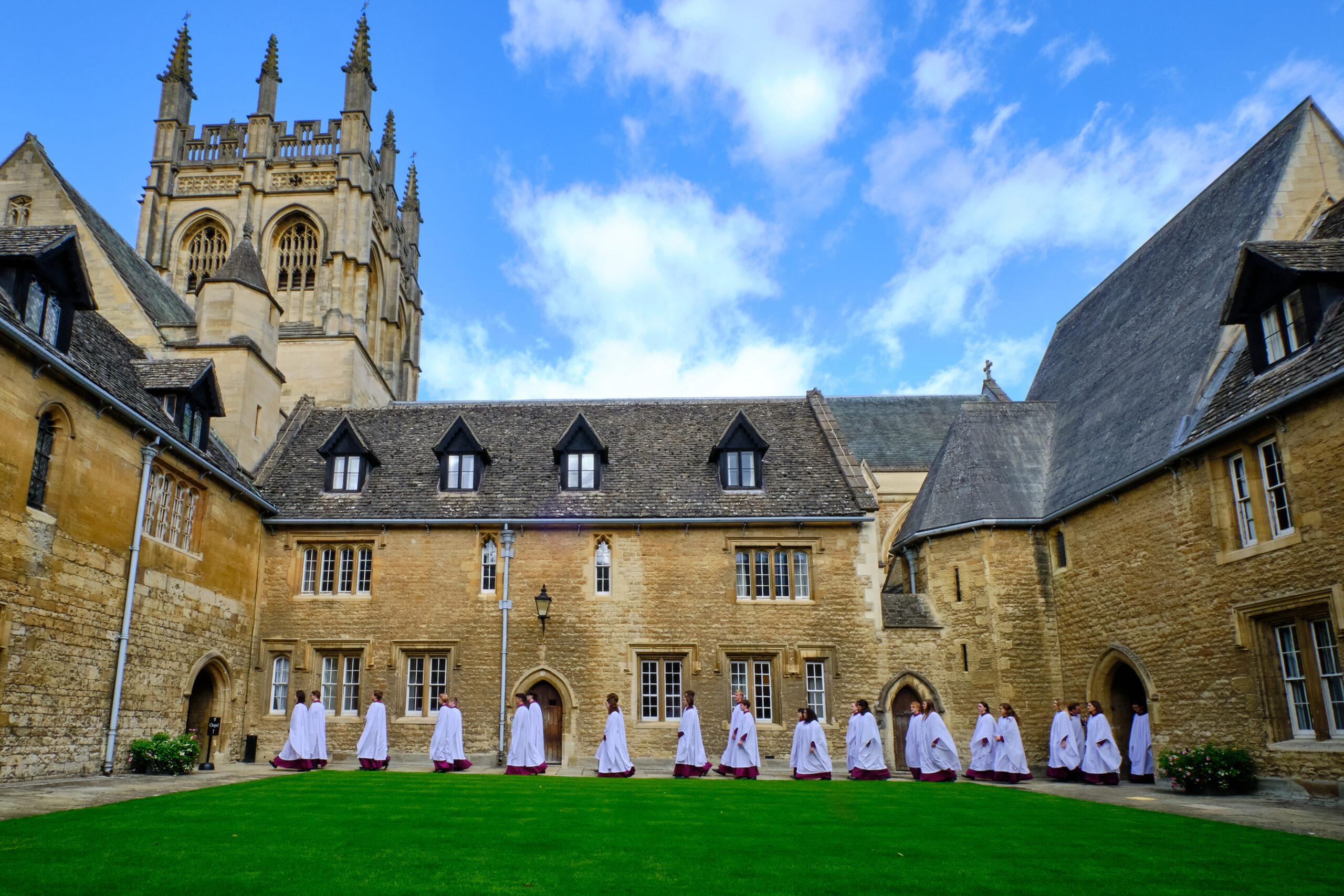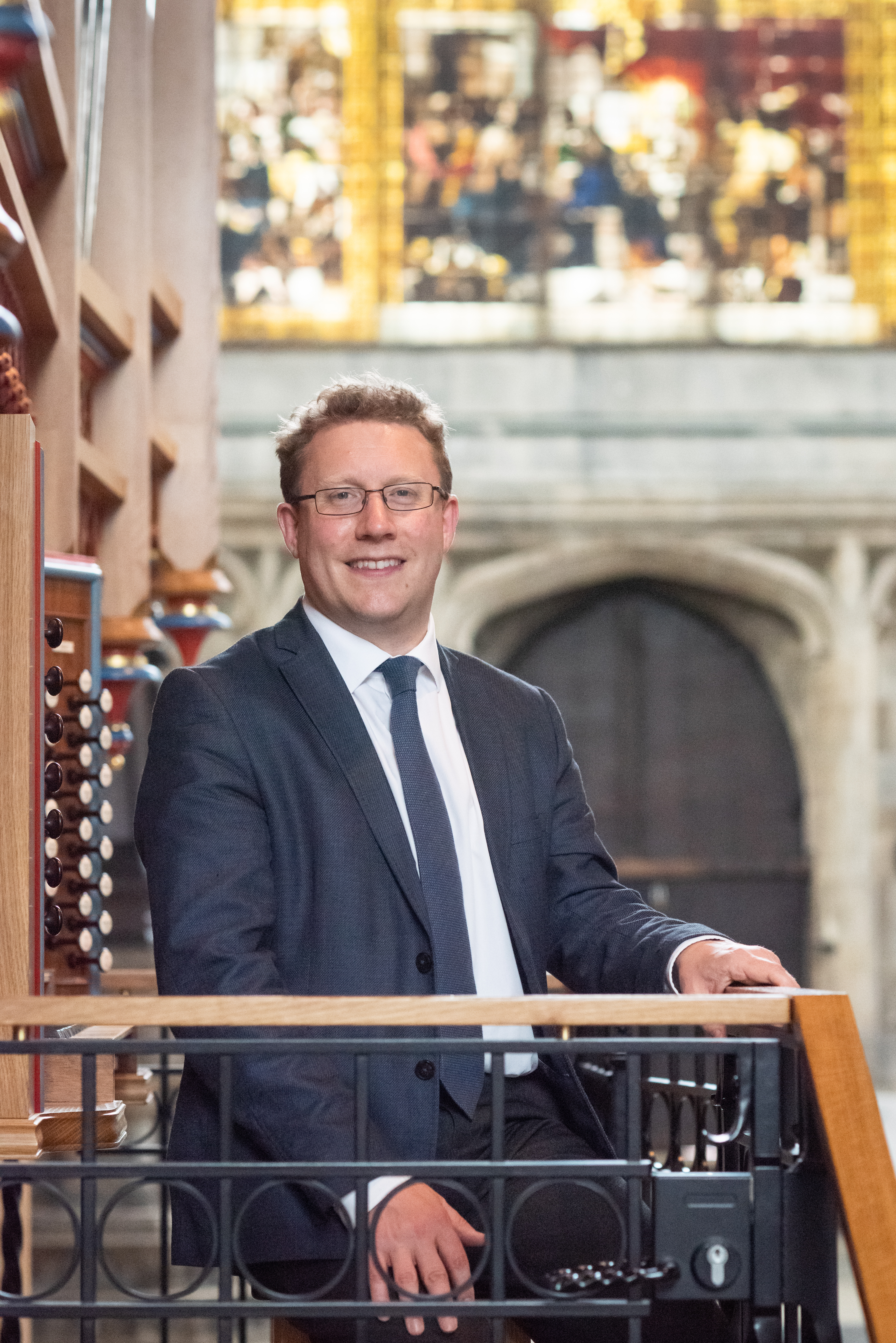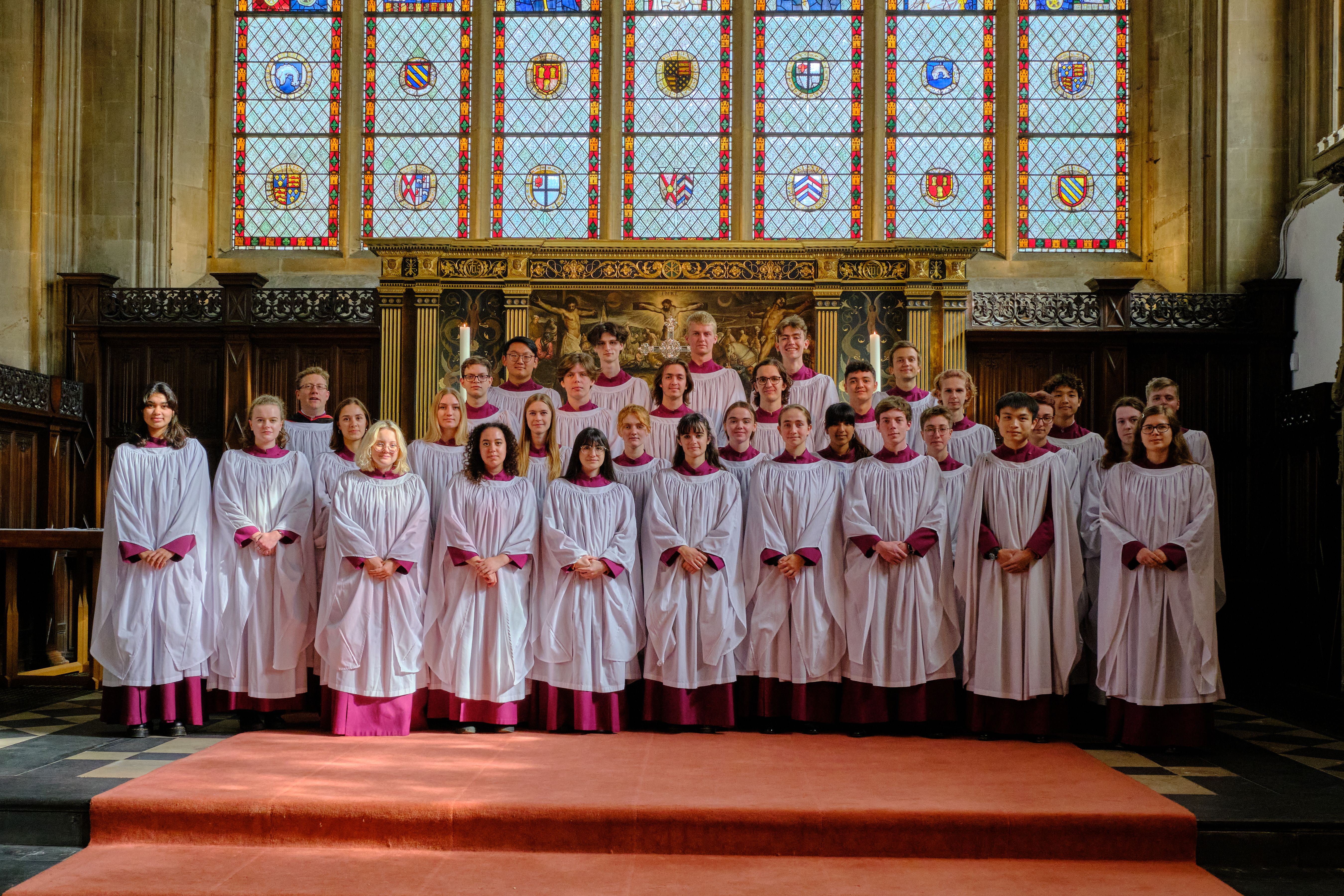The classical world continues to be in a state of transformation since the shutdowns forced by the coronavirus pandemic, with varied forms of transformation rippling through an array of houses, companies, and, perhaps most especially, people. I last spoke with English bass Brindley Sherratt in August 2020, when he and English tenor John Daszak were busy rehearsing an unusual, socially-distanced production of Boris Godunov directed by Barrie Kosky in Zürich. “You want to shout, ‘Opera’s not dead!‘” Sherratt commented, a needed buoy amidst the near-universal opera world gloom at the time.
Since then, Sherratt has applied that brand of encouragement to his own work. The bass’s first album of art songs, Fear No More, was released by Delphian Records in April. Recorded in 2023 at Henry Wood Hall in London, the album takes its title from a song by 20th century composer Gerald Finzi, “Fear no more the heat o’ the sun”, part of the composer’s Shakespeare-connected song cycle Let Us Garlands Bring (1929-1942) and itself based on lines from Shakespeare’s Cymbeline. Along with Finzi and fellow British composers John Ireland, Ivor Gurney, Michael Head, and Peter Warlock the album also features the music of Schubert, Strauss, and Mussorgsky. Booklet writer John Fallas notes in his album text that “not many singers record their first recital album two decades into a successful international career” – but one listen reveals a wealth of vocal riches underlining Sherratt’s deep musical intelligence and his innate understanding of text.
In a review of Fear No More for BBC Music magazine, writer Ashutosh Khandekar notes that “Sherratt possesses that rare gift – a genuine bass voice that carries its lyrical, expressive clarity from its ringing high notes right down to a full-toned basso profundo delivered without a trace of muddiness.” Indeed, Sherratt brings light, colour, texture, and a positively operatic splendour to the album’s smart lineup. Fear No More opens with six songs by Franz Schubert, all, with the exception of the famous “Der Tod und das Mädchen” (“Death and the Maiden”) written for a bass voice; Sherratt’s crisp diction, oaken tone, and colourful phrasing poetically illuminate the composer’s thoughtful vocal writing. Richard Strauss’s early 20th century song “Im Spätboot” follows and is given particularly a delicious reading. Songs and Dances of Death, Mussorgsky’s mesmerizingly macabre song cycle, is performed with a touching mix of terror and humanism. Sherratt especially soars in the English-language songs; John Ireland’s 1913 song “Sea-Fever” shows Sherratt’s careful modulation and colouration of the words of poet John Masefield, offering a masterclass in the art of storytelling through song.
That instinct for storytelling has also found expression in recitals, with the singer’s former reluctance around them replaced by something approaching glee. In addition to performances at Oxford Lieder Festival and Temple Music Foundation in 2022, Sherratt made his Wigmore Hall debut this past February, and more recitals are indeed in the works. There’s also a busy 2024-2025 opera season ahead, with performances of Billy Budd in Vienna, new productions of Semele in Paris and London, and a revival of Der Rosenkavalier in Munich. Sooner than that, Sherratt is set to perform in a BBC Proms presentation this August of Janáček’s Glagolitic Mass with the Czech Philharmonic led by incoming Royal Opera House Music Director Jakub Hrůša; he will be singing alongside soprano Corinne Winters, mezzo soprano Bella Adimova, and tenor David Butt Philip.
A conversation with Sherratt is always a true pleasure, his easy mix of intelligence, passion, and kindness creating a natural, good-humoured exchange of ideas and experiences.
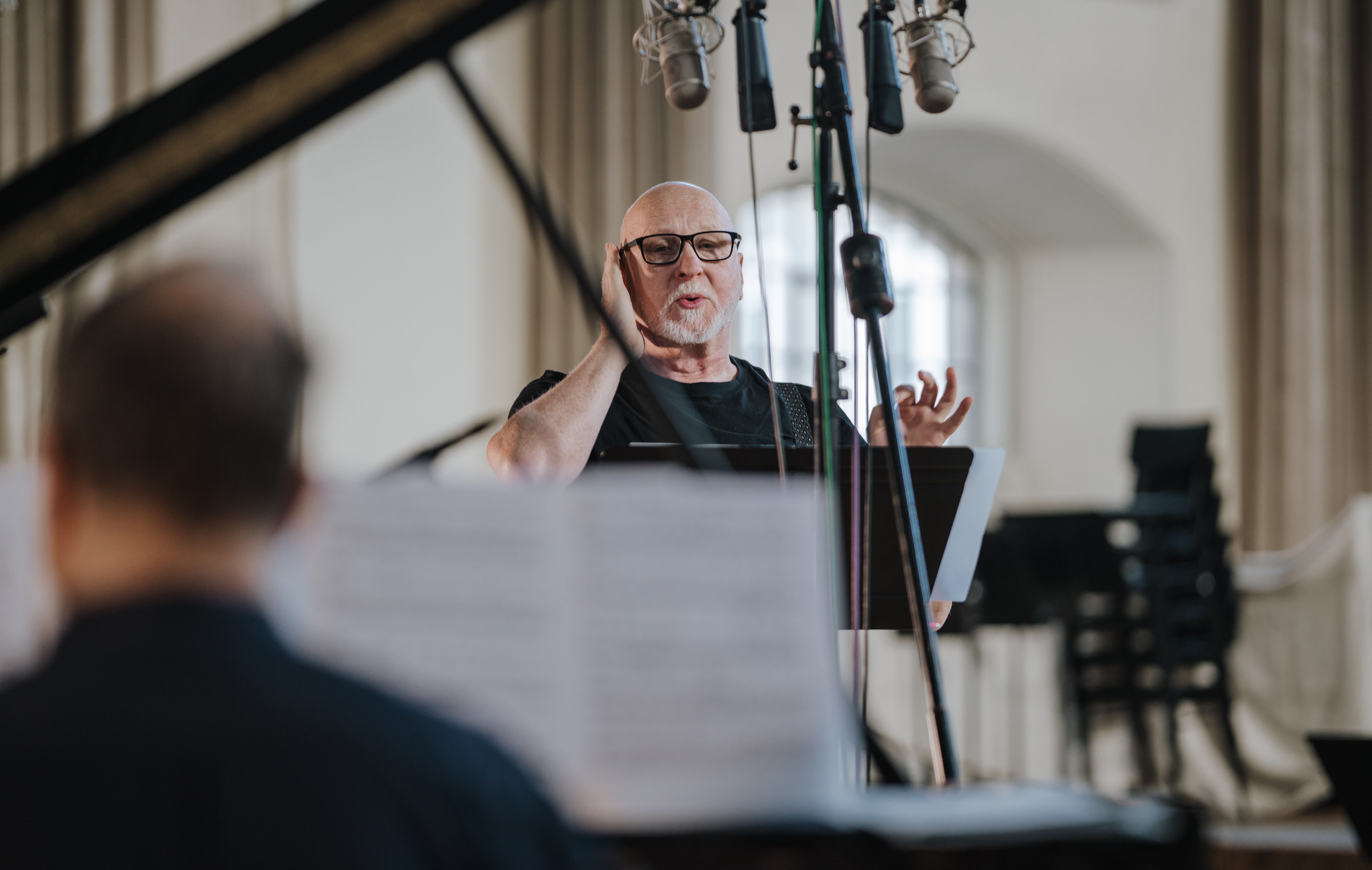
Brindley Sherratt recording Fear No More with pianist Julius Drake. Photo: foxbrush.co.uk
How did you choose the works on the album? You’d mentioned your love of text in a recent interview, and I wonder if that played a role.
It was indeed that love of text, but a lot of other things as well. I felt it was an incredibly risky thing to do an album at my age, with my voice – some of that feeling was in my own mind, but there were other fears related to there not being many basses doing recordings of lieder. Also there aren’t many basses my age, with an entire operatic career, suddenly switching to song. I met Julius Drake after a performance at Covent Garden and he said, “Why don’t you come around to my house on a Saturday morning and we’ll play around with a few pieces?” I said, “I don’t know what to sing!” He said, “Come around; we’ll work through some repertoire – let’s have a go.” So we did. We spent about three hours exploring this and that.
I wanted to choose things for the album that A/ I like, and B/ I think suit my voice. As a bass, and I’ve said this before, songs and recitals are like wearing your sibling’s hand-me-downs: you have to transpose down and adjust everything. I knew from the get-go that I wanted to include Schubert. As for Strauss: there are three or four songs that wrote specifically for the guy who first sang them (Paul Knüpfer), a bass who went on to be a famous Baron Ochs in Rosenkavalier, so I thought “Im Spätboot” was a good start. I’d already done some other Strauss songs with an orchestra – and I do love his writing so much.
Likewise the Mussorgsky cycle; I’d done Songs and Dances of Death with an orchestra two or three times, and I thought, gosh I’d love to do this with piano. Julius said, “Why don’t we just put them on the record?” I also thought I would like to do something in my own language and then it became a case of finding things I like.
There’s something extra special about the English songs – why these ones in particular?
When I was a student decades ago and had just started to sing – I was a trumpet player and switched to singing – I remember learning a few songs, and thinking, well, I’m a singer so of course I should sing songs. One of them was Finzi’s “Fear no more the heat o’ the sun” – I loved it ever since, but never had the chance to sing it because I’ve never done recitals. There’s something about this work, after all these years, that I still connect with, so I knew I had to include it on the album. For other songs, I had help: Sarah Connolly introduced me to “By A Bierside” (Ivor Gurney) – she said she thought it would suit me because it’s quite dramatic; Roderick Williams was a very big help also. He really knows his repertoire! I said to him, “Please help me out? Give me pointers as to what would suit me since you know my voice.” He’s been a very big source of information with the English song material. It’s like the TV show “Who Wants To Be A Millionaire?” with contestants using a lifeline to call a friend and help them with a question – I phoned a friend, or rather several friends, who had done this repertoire and said “Hey, hello!”
On Being Pushed
Tell me more about your creative connection with Julius Drake – to what extent was he pianist, coach, mentor, critic… ?
He played all of those roles at some point – all of them. He kept saying, “Brin, you can do this” throughout. I would say, “Oh, I can’t sing this stuff, It’s too this, it’s too that.” And he said, “Come on, let’s keep going.” He would literally push me through the songs and offer ideas for others, and I would look at them and say, “Nah, don’t want that, it’s too boring” or “Maybe?” – and he was there to urge me on.
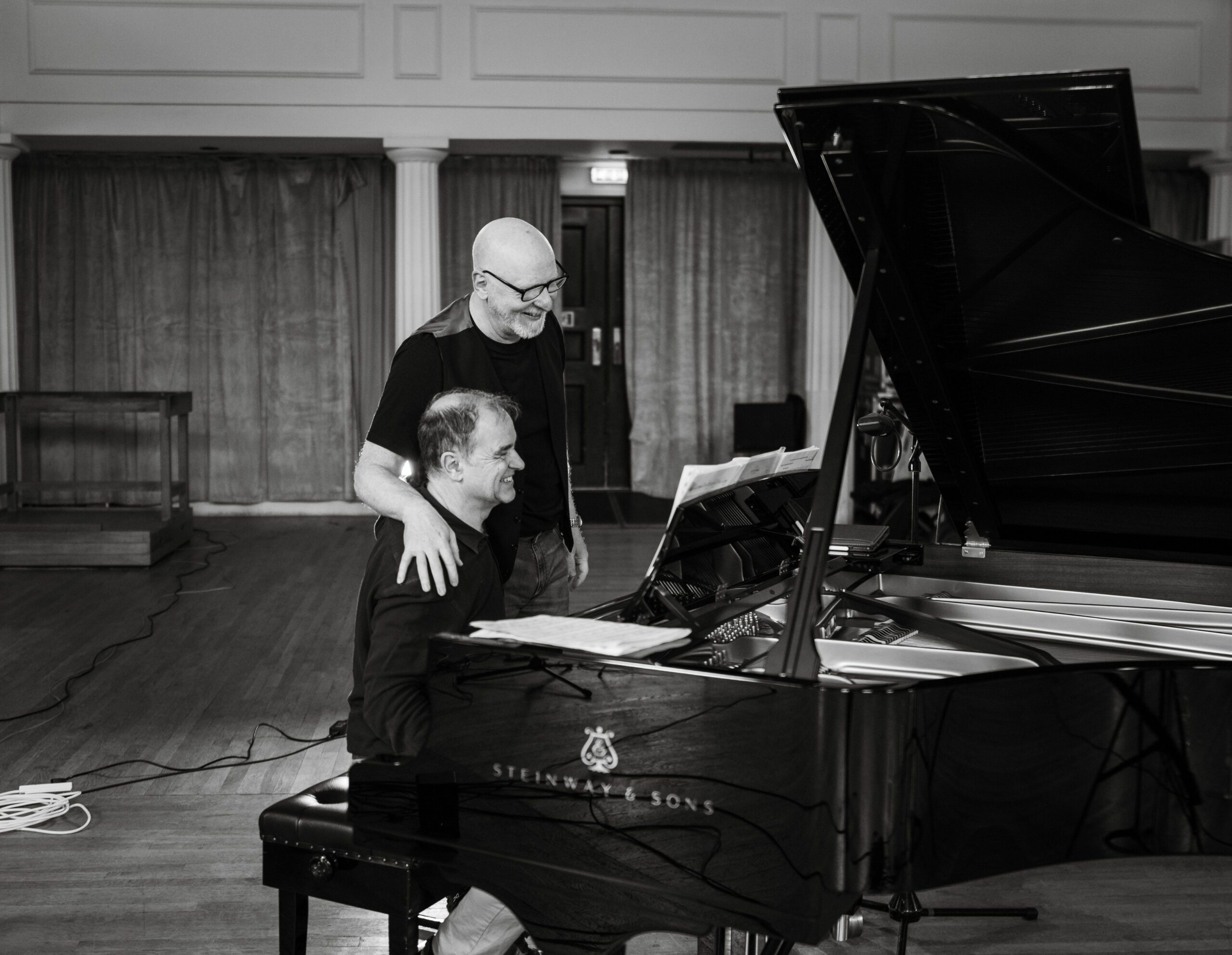
Brindley Sherratt recording Fear No More with collaborative pianist Julius Drake. Photo: foxbrush.co.uk
Did this form of coaching happen with your recitals as well?
Oh yes! Having not done a recital for 20-something years or more, there I was suddenly doing two recitals on two consecutive nights. Whilst we were preparing Julius would say things like “Not like that, we need more colour here.” I’d try something else and say, “Is that right?” And he’d say, “Nah, not right. Try something else.” We’d try this and that, and in that process I discovered a whole softer colour to my sound, one I didn’t know I could do. I was able to play around a lot more as a result, and Julius would push me: “Bring that sound”, “We need to bring this text out here”, “That was too slow”, “That was too fast”,“That was close to being chamber music!” The process was new to me.
With opera, it’s just such a huge scale, and sometimes you’ll have a conductor who will coach, like Tony Pappano – he gives loads of notes like “Just sing this way”, “Try it that way” and I love that approach – but opera is still this big long process. You’re on stage, you have other things and people to add and interact with. Also, I might have said this already in another interview: I prefer my audiences in the dark about 80 feet away with a symphony orchestra in-between. The kind of intimacy chamber music demands was the thing that I feared most, especially in terms of doing recitals; it also became the thing I enjoyed the most. There’s a great intimacy when it’s just me and a piano. This whole process has been a revelation.
Does that include your recital work?
Initially I was worried about those. I thought, “What if nobody comes?” Well, I went out and there were big crowds who gave big cheers and I thought, “Oh, this is great!” At Wigmore Hall in February the place was heaving with people. All the students I worked with were there along with every bass in the country, including John Tomlinson. I found it overwhelming, though it also made me think that maybe I’m okay at this stuff; I need to trust that feeling.
Do you think recitals and art songs have made you a better opera singer?
I think so, yes. I was doing Rocco in Fidelio (in Munich) this year, and Gurnemanz a year or more ago, and I found I used a lot of soft colours which I would have not have used before. Those softer colours are really important, especially to basses, as you know. I feel much more rounded as a singer, and the songs (on the album) were great for that kind of work.
Keeping The Voice “As Fresh As Possible”
What have you learned about your voice through the last decade or so?
There was a stage I went through actually about eight or ten years ago where I wanted to make a big noise. At one point I thought, “I don’t think I’m singing healthily.” Going back to Gurnemanz, when I was first learning that part years back I was listening to Gottlob Frick, who is my favourite German bassist of all. He was 68 when he recorded Parsifal; he came out of retirement to do it. Having had a long career singing the heaviest roles, the Hagens and the Hundings, over and over and over again, here he is at 68 – when really the voice should be starting to wear a bit – and my God, he sounds so good, so vulnerable – it’s just sublime, beautiful singing. When I heard it I thought: I want to be able to do that.
It was while I was singing I was singing Ochs at Glyndebourne (2018) that I found a much more, what’s the word, a more contained and less fat kind of sound; I purposely took my voice down a little bit and worked. That moment was the foundation, as it were, because when I started to learn and sing songs, I realized that I want to be able to sing “Some Enchanted Evening” and have it be beautiful – that, or Winterreise, or Finzi’s “Fear no more the heat o’ the sun”. I want people to say, “That’s a beautiful voice” and not “That’s a ragged old voice.” So I think the combination of songs and opera is important to keep the voice as fresh as possible at my age.
What role does teaching play?
I coach a lot of young basses, bass baritones too, and for so many of them the pressure is on in their 20s in terms of making a career, and so they all want to sound as loud as possible. What happens is they go into a young artists program and they’re on stage with guys who really know what they’re doing, but they have to match it, or feel like they do, so they try to make their voice big before it’s kind of found its way. There are so few roles for young low voices – it’s a lot of Second Old Man or Third Gatekeeper – but young artists feel forced to make big sounds so early on, and I’m always saying to them now, “Learn songs, sing songs; learn a few cycles; learn Handel, and more Handel; listen to various artists.” I think you need to have that balance, and the confidence too – we definitely need to have that!
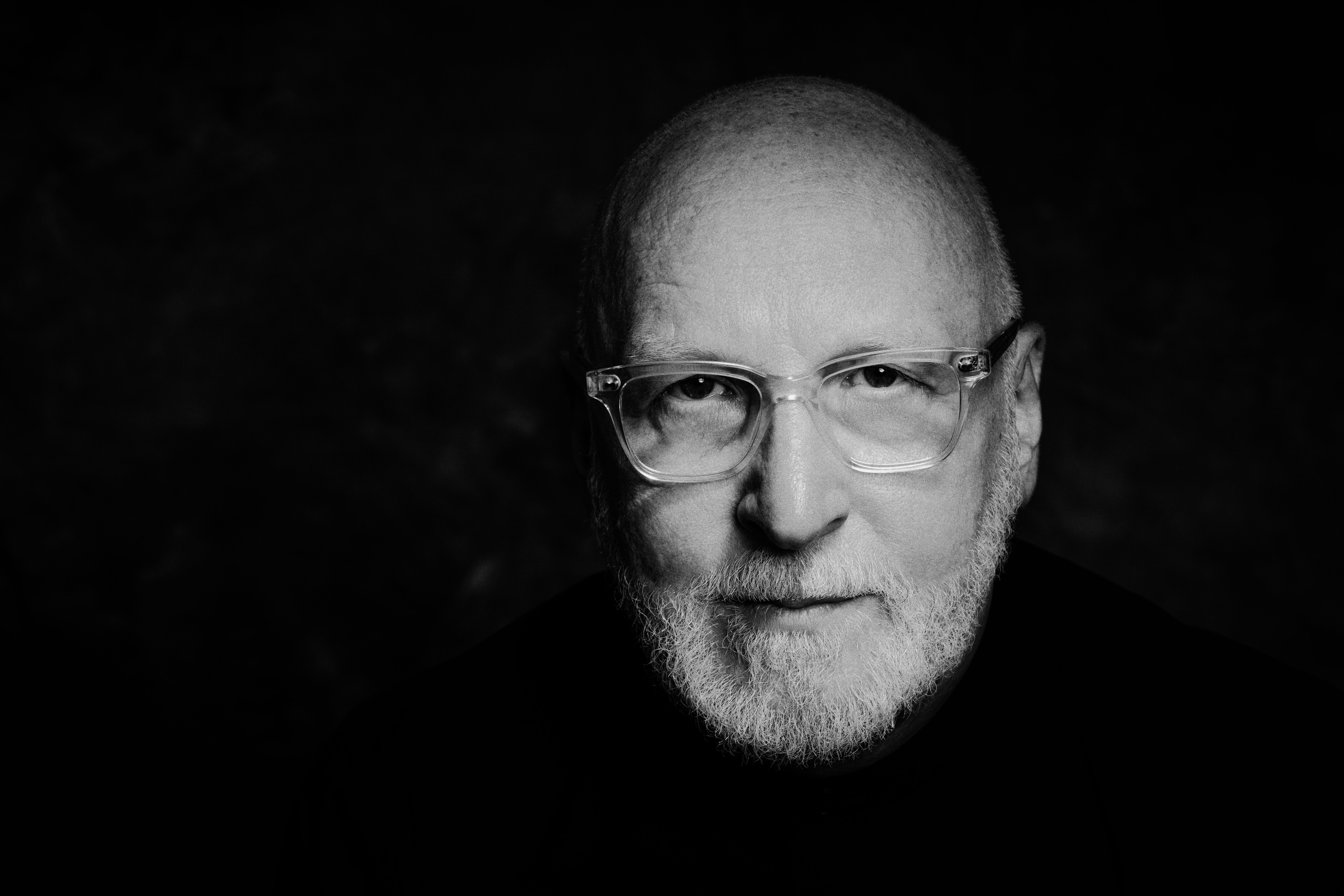
Photo: Benjamin Ealovega
A second album?
Which songs might be in the future for you, on record or live in recital?
I think everyone wants to sing Winterreise, and I admit to being one of them! It’s an incredibly intimidating cycle but I find it so enchanting; I love listening to it and I love singing it. I’d want to do it in recital a few times before I went anywhere even near a recording studio. So that’s a possibility. I’ve also been thinking I would like to do a disc of songs in my mother tongue, and at the moment I’m leaning towards an album of English song; I asked Ryan Wigglesworth if he would write me something, and he’s up for that. Robert Lloyd said to me many years ago, “Make sure you do a song recital once a year; It’s so easy to just bellow” – it’s so true.
I was amazed in the recitals to note that after I’d sung a few phrases that are quiet and soft, I could sense everyone leaning in and really listening – it was just lovely! I never would have thought of having that kind of closeness with an audience, but it’s been amazing, and I definitely look forward to more moments like that.

